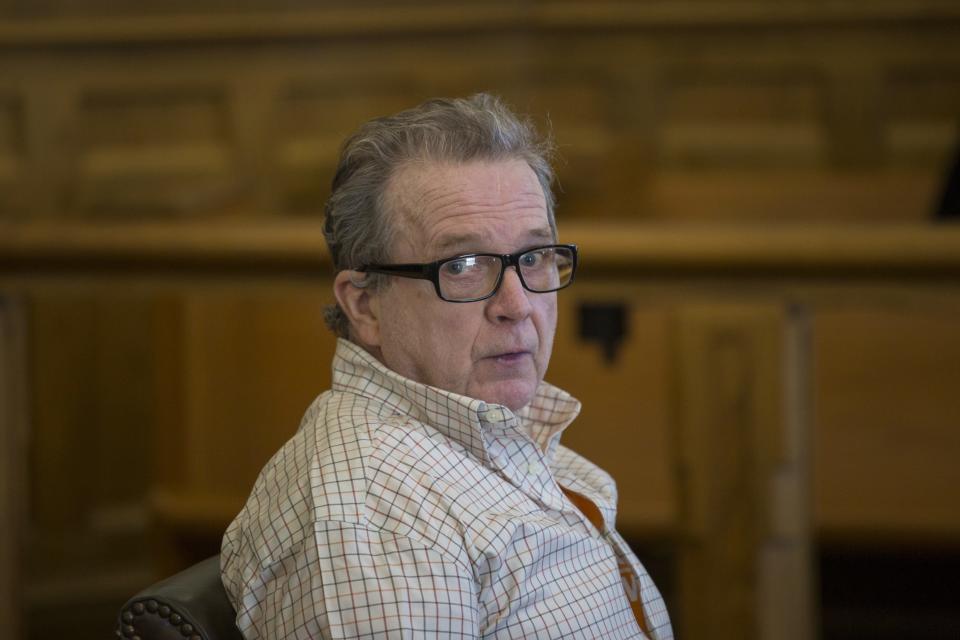Wollaston man who smothered girlfriend to death loses appeal
QUINCY − The state Supreme Judicial Court has upheld the 2019 conviction of Joseph W. Beatty, of Quincy, for first-degree murder and aggravated rape in the 2009 death of his girlfriend, Mary Beaton.
A jury had found Beatty guilty of raping and killing Beaton, 33, in her Wollaston apartment on Aug. 28, 2009. He was sentenced to life in prison without parole.
Beatty's defense appealed the conviction, arguing that the trial judge, Thomas Connors, unfairly found Beatty competent to stand trial and that Connors' sentencing instructions could have misled the jury about the consequences of a "verdict of not guilty by reason of lack of criminal responsibility."

The Supreme Judicial Court opinion, which was issued Friday and written by Associate Justice Dalila Wendlandt, mentioned that Beatty had surgery to remove his parathyroid glands in June 2009. Beatty's defense had argued that after the surgery, he grew forgetful, tired and confused, and reported doing "weird things."
Beatty spent the days immediately leading up to the killing with his family at the Foxwoods casino in Connecticut, where he was "distraught" and told his sister that he was molested by a neighbor when he was a child.
At the trial, his defense said that at Foxwoods he began to hear voices in his head commanding him to jump out the window. Beatty also said he heard voices at his girlfriend's apartment just before he strangled her, saying, "What are we going to do about her?"
More: Daughter says Quincy killer took away a life with her mother
On the morning after Beaton died, Beatty called his sister and arranged to meet her across from Boston Medical Center in Boston. His sister testified that he appeared "crazed," "distraught" and "disheveled."
Beatty repeatedly told her and other family members that he "did a bad thing." Inside the hospital, Beatty encountered a Boston police officer and confessed to the killing.
The officer notified Quincy police, who reached Beaton's apartment at 1 p.m. They found her body under a sheet on the bed, naked except for a necklace Beatty had placed around her neck and two crucifixes flanking her body. She suffered multiple hemorrhages and a broken bone near her jaw.
At the hospital, Beatty told police he and Beaton were drinking beer and sharing a Valium when they started arguing about money. He confessed to strangling her and smothering her with a pillow.
"My brain was just doing what it was doing. I had no control over it," he said.
Beaton's 11-year-old daughter was not home when her mother died.
Between his indictment in 2009 and conviction in 2019, Beatty was shuttled back and forth between pretrial detention and Bridgewater State Hospital, where he was committed three times between 2015 and 2017. In 2013, Director of Forensic Services and Psychology Charles Carroll diagnosed him with schizoaffective disorder, a condition marked by psychotic delusions and paranoia.
Beatty was found not competent to stand trial in 2012 and 2013, but in 2014 and 2018 he was found competent.
At the trial, Beatty's defense raised the issue of his competency several times. Each time, the judge ordered evaluations by court clinicians, all of which affirmed Beatty's competence. The judge noted Beatty's behavior and demeanor throughout the trial and found that he conferred with his counsel, took notes and alertly watched the presentation of exhibits.
Wendlandt wrote that the judge responded to the defense's concerns by consulting experts and using his own observations.
The Supreme Judicial Court found that the jury instructions were sound and included the possibility that a verdict of not guilty by reason of lack of criminal responsibility could result in Beatty remaining in a locked facility for the rest of his life.
Wendlandt noted "substantial evidence that (Beatty) lacked criminal responsibility ... and substantial evidence to the contrary. ... In short, the jury were entitled to conclude that the defendant was criminally responsible," she wrote in affirming the original verdict.
Norfolk County District Attorney Michael Morrissey, in a statement reacting to Friday's ruling, said, "We felt strongly that Judge Connors did not abuse his discretion or commit error in his ruling and that Mr. Beatty's conviction served justice."
This article originally appeared on The Patriot Ledger: Murder conviction of Quincy's Joseph Beatty upheld on appeal

